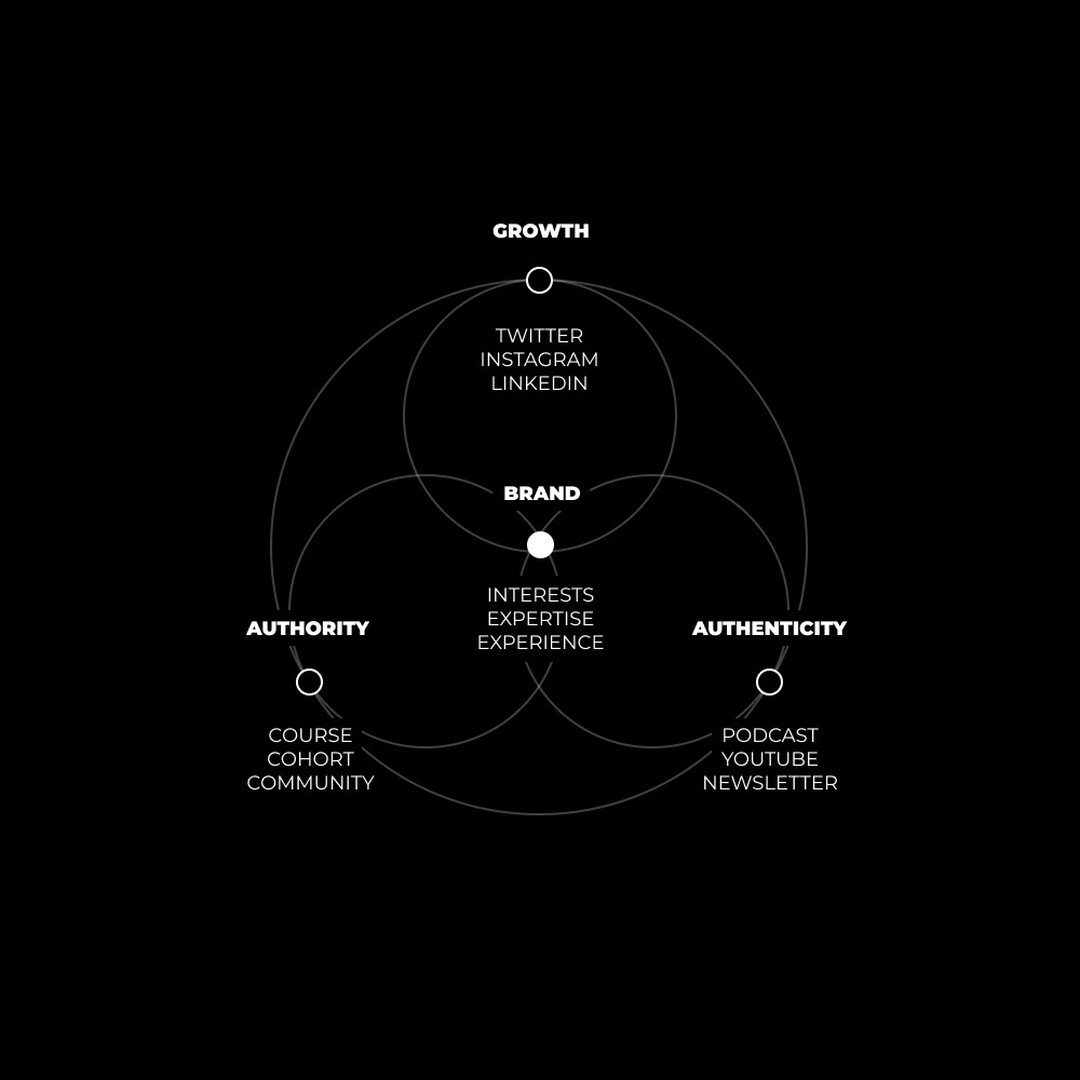Personal Branding 101: Creating Your Own Niche: Combining Interests, Experience, Expertise, and Skills to Build a Thriving Online Business
February 10, 2023
In the world of online entrepreneurship, one of the most important decisions you will make is to identify your niche. Your niche is essentially the combination of interests, experiences, expertise, and skills that make you unique and sets you apart from others. By identifying and honing in on your niche, you can build a brand that resonates with your target audience and positions you as an authority in your field.
However, creating your own niche can be a daunting task, especially if you have a wide range of interests, experiences, and skills. The key is to identify the overlap between these different aspects of your life and find the common thread that ties them all together. This common thread will become the foundation for your niche and the starting point for building your online business.
In this article, we’ll explore the steps you can take to create your own niche and how to effectively monetize it through a variety of platforms such as Twitter, Instagram, Podcast, Youtube, Newsletter, and LinkedIn. We’ll also share content and tips from online marketing expert, Dan Koe, on how to build a thriving online business.

Step 1: Identifying Your Interests
The first step in creating your own niche is to identify your interests. What are the things that you are passionate about? What are the topics that you could talk about for hours without getting bored? These interests are the foundation for your niche and will form the basis for the content you create.
For example, if you’re interested in cooking and nutrition, your niche could be health and wellness. If you’re interested in technology and innovation, your niche could be tech startups. The key is to find a topic that you’re passionate about and can easily create content around.
Step 2: Assessing Your Experience and Expertise
Once you have identified your interests, the next step is to assess your experience and expertise. What experiences have you had that relate to your interests? What skills have you developed that set you apart from others in your field?
For example, if your niche is health and wellness, you might have experience working as a personal trainer or nutritionist. If your niche is tech startups, you might have expertise in coding or designing websites. By combining your interests with your experience and expertise, you’ll be able to build a niche that is unique to you and positions you as an authority in your field.
Step 3: Evaluating Your Skills
In addition to your interests and experience, it’s important to evaluate your skills to determine how you can best serve your target audience. For example, if you’re a skilled writer, you might consider creating a blog or writing articles. If you’re a skilled speaker, you might consider starting a podcast or creating videos for Youtube.
Your skills will play a critical role in how you present your niche to your target audience. By leveraging your skills, you’ll be able to effectively communicate your message and build a following of engaged fans.
Step 4: Building Your Platforms
Once you have identified your niche, the next step is to build your platforms. There are a variety of platforms you can use to reach your target audience, including Twitter, Instagram, Podcast, Youtube, Newsletter, and LinkedIn. By using a combination of these platforms, you’ll be able to reach a wider audience and build a more robust online presence.
Twitter is a great platform for building a community and connecting with others in your niche. By sharing your thoughts and ideas, you’ll be able to engage with your followers and create a loyal following. Instagram is a visual platform that allows you to share images and videos related to your niche. This platform is especially useful if you have a visually appealing niche, such as food, fashion, or travel.
Podcasts are a great way to build your authority and connect with your audience. By creating a podcast, you can share your thoughts and ideas in a conversational format, allowing your audience to get to know you on a more personal level. Youtube is another platform that allows you to share your thoughts and ideas in a visual format. Whether you’re creating videos about your niche or providing tutorials and demonstrations, Youtube is a powerful tool for building your online presence.
Newsletters are a great way to stay in touch with your audience and keep them updated on the latest developments in your niche. By creating a newsletter, you can share your latest content, offer special promotions, and provide value to your subscribers.
LinkedIn is a professional networking platform that can help you build your online presence and connect with others in your field. Whether you’re looking to build your personal brand, connect with potential clients, or network with others in your niche, LinkedIn is a powerful tool that can help you achieve your goals.
Step 5: Monetizing Your Niche
Once you have established your niche and built your platforms, the next step is to monetize your niche. There are a variety of monetization options available, including digital products, cohorts, courses, and community.
Digital products, such as e-books and online courses, are a great way to monetize your niche. By creating valuable content, you can sell your products directly to your audience and build a sustainable income stream.
Cohorts, or members-only communities, are another option for monetizing your niche. By offering a community where your audience can connect with each other and receive personalized support from you, you can charge a monthly or yearly membership fee and build a sustainable income stream.
Courses are another option for monetizing your niche. By creating and selling courses, you can provide your audience with in-depth training and support, helping them achieve their goals and build a sustainable income stream.
Building a community is another way to monetize your niche. By creating a community of like-minded individuals, you can provide value, foster engagement, and build a loyal following. You can then monetize your community by offering premium content, coaching, or other value-added services.
Tips from me(Stephen Ajulu) on content creation
- Know Your Target Audience: Understanding who your target audience is and what they want to read is essential to creating content that resonates with them. This can be done through research, customer surveys, and analysis of social media data.
- Focus on Quality over Quantity: It’s better to have a few pieces of high-quality content than a large number of poorly written pieces. Focus on writing content that is well researched, engaging, and adds value to your target audience.
- Make it Visual: People are more likely to engage with content that includes images and videos. Consider incorporating these elements into your content to make it more visually appealing and help break up long blocks of text.
- Be Consistent: Establish a consistent publishing schedule and stick to it. This helps build trust and credibility with your audience and ensures that they have a reason to keep coming back for more.
- Optimize for Search Engines: Use keywords in your content that are relevant to your target audience and optimize your content for search engines. This will increase the chances of your content appearing at the top of search engine results and reaching a wider audience.
Tips from Dan Koe: Building a Thriving Online Business
Dan Koe is a well-known online marketing expert and entrepreneur who has helped many businesses build their online presence and grow their income. Here are some of his tips for building a thriving online business:
- Focus on Your Niche: Dan emphasizes the importance of focusing on your niche. By honing in on your niche, you can build a brand that resonates with your target audience and positions you as an authority in your field.
- Build a Community: Dan believes that building a community is key to success. By creating a community of like-minded individuals, you can foster engagement, build a loyal following, and provide value to your audience.
- Create Valuable Content: Dan emphasizes the importance of creating valuable content. Whether you’re writing articles, creating videos, or offering courses, your content should provide value to your audience and help them achieve their goals.
- Leverage Technology: Dan believes that technology is a powerful tool that can help you reach a wider audience and build a more robust online presence. Whether you’re using social media, podcasting, or other platforms, leveraging technology can help you connect with your audience and grow your business.
- Monetize Your Niche: Dan believes that monetizing your niche is key to building a sustainable income stream. By offering digital products, courses, memberships, or other value-added services, you can turn your passion into a profitable business.
- Provide Excellent Customer Service: Dan emphasizes the importance of providing excellent customer service. Whether you’re interacting with your audience on social media, responding to customer inquiries, or delivering your products, providing excellent customer service is key to building a successful online business.
- Stay Up-to-Date with Industry Trends: Dan believes that staying up-to-date with industry trends is important for staying ahead of the competition and building a thriving online business. By staying informed about the latest developments in your niche, you can stay ahead of the curve and provide your audience with the latest information and resources.
In conclusion, building a niche by combining your interests, experience, expertise, and skills is a powerful way to build your online presence and create a profitable business. By focusing on your niche, building a community, creating valuable content, leveraging technology, monetizing your niche, providing excellent customer service, and staying up-to-date with industry trends, you can build a thriving online business that allows you to turn your passion into a profitable enterprise.
See Also
- Personal Branding 101: How to Present Yourself in Social Media Including Cover Images, Bio Optimization, and Presentation
- Personal Branding 101: Choosing the Right Platform and Content Format
- How To Use The Halo Effect To Your Advantage: The Superficial Matter
- Supercharge Your Business: Unlock the Power of AI to Take Your Business to the Next Level
- Beyond Art - Unlocking the Potential: How to Use NFTs as Access Keys

